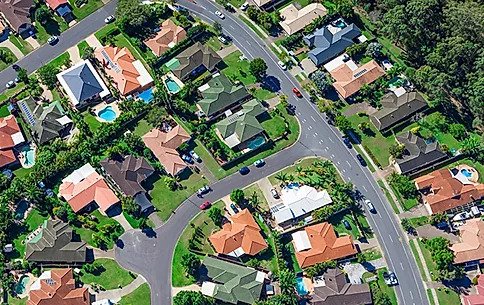If you own residential premises that you rent out, you should be aware that you may no longer be able to claim travel deductions connected with trips you make to and from those premises.
Travel expenditure incurred on or after 1 July 2017 in connection with residential premises from which you earn rent or other assessable income will not be deductible (subject to certain exceptions – see below). This includes expenses for travel undertaken to, for example, collect rent, inspect, or maintain the premises.
The measure was originally announced in May as part of the 2017–2018 Federal Budget. We now have legislation that will implement this.
“Travel expenditure includes motor vehicle expenses, taxi or hire car costs, airfares, public transport costs, and any meals or accommodation related to the travel”
Some workplaces require their staff to wear a uniform. Or if you’re a tradie, you will be required to wear steel capped boots, heavy duty protective clothing and other items. You could claim:
- Uniform
- Laundry
- Protective shoes or non-slip shoes
- Safety equipment and protective clothing
- Sunglasses and sunscreen.
It does not matter where the residential premises are located. For example, if you travel by car to mow the lawn of a house you rent out, you will not be able to deduct those car expenses. Similarly, if you fly interstate for a couple of days to inspect an apartment you rent out and you stay in a hotel, you will not be able to claim a deduction for your flights, hotel, meals and taxis (eg, to and from the airport or from the hotel to the apartment).
There are a number of exceptions to this, which are as follows:
-
if the expenditure is incurred in carrying on a business (eg, if you own many residential rental premises and you are treated as carrying on a business);
-
if the expenditure is incurred by a company;
-
if the expenditure is incurred by a managed investment trust or a public unit trust;
-
if the expenditure is incurred by a superannuation fund – but this exception does not apply if the fund is a self-managed fund (SMSF), so travel expenditure incurred by an SMSF will not be deductible.
If the residential rental premises are owned by a partnership, the travel expenditure will not be deductible unless all members of the partnership are one of the excluded entities listed above – ie, a company, managed investment trust, public unit trust or superannuation fund that is not an SMSF.
You should also be aware that any travel expenditure that is not deductible will be ignored in working out your capital gain (or loss) should you sell the premises – in other words, the expenditure cannot reduce the capital gain (or increase the loss).
The changes will not prevent you from engaging third parties such as real estate agents to provide property management services for an investment property. These expenses will remain deductible.
Other restrictions
There are two other related measures that were announced in the Federal Budget:
-
limiting depreciation deductions for second-hand depreciating assets used or installed in residential rental premises; and
-
imposing an annual vacancy fee on foreign owners of residential property that is not occupied or genuinely available for rent for at least six months in a 12-month period.
Do you rent out residential premises?
If you rent out residential property that you own, please contact our office for further information on what is deductible from the tax you may owe.


